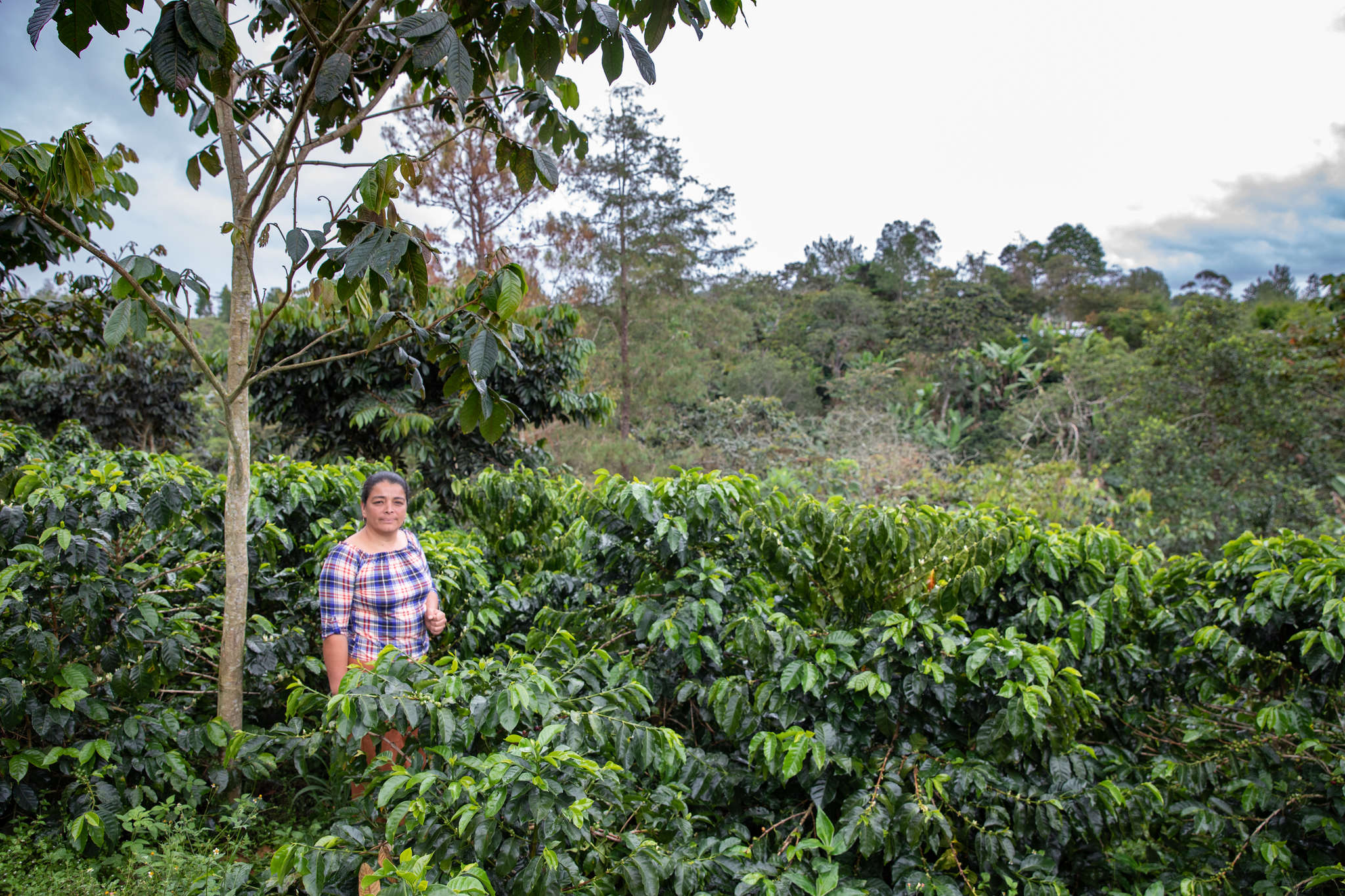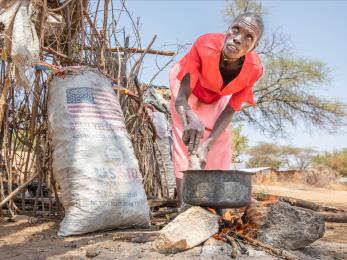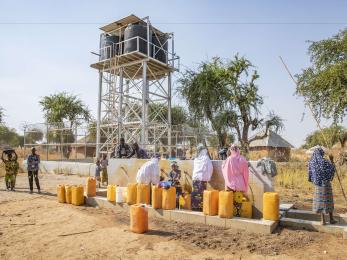Goal!: Sports, community, and supporting young people
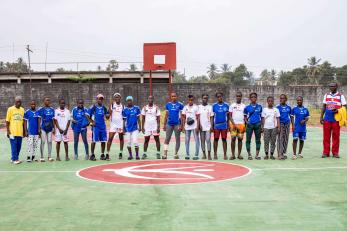
In the small town of Gborfellah, in Margibi county of west Liberia, 60 young women joined a kickball club. Passersby may see a large group of young women playing a game in a field and not think much of it. They practiced kickball, but more importantly, they were also developing core life skills like communication, teamwork, problem-solving, and leadership.
“These training have come to have great effects on the young women,” said Aloysius Davies, coach of the kickball club. He saw participants growing, learning, and becoming more disciplined. “And this is demonstrated by their behaviours in training sessions, on the practice ground, and elsewhere in the community.”
Since 2002, Mercy Corps Liberia have been supporting recovery efforts following years of conflict and crisis. Sports and play promotes mental health wellness, which is especially vital in places affected by conflict and disaster. In addition to kickball clubs for young women, we offered football clubs for young men. In Liberia, kickball is seen as a girls and women’s sport, but we’ve seen an increase in women playing football in recent years.
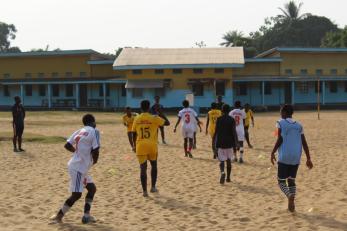
The sports clubs were a part of Mercy Corps Liberia’s Life Skills and Sports Development initiative, which was part of a larger programme that promoted youth employment and entrepreneurship. Through sports, we teach critical life skills, especially for young people who lack access to a formal education or may feel disconnected from their communities. By collaborating with local coaches from within their own communities, we enrolled more than 4,600 young people in sports clubs—with 56% young women participants.
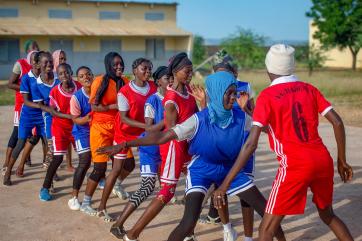
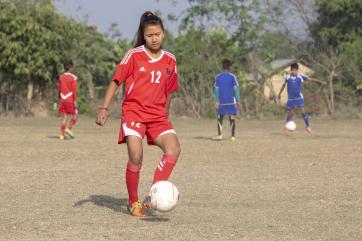
My colleagues in other programme teams in countries like Nepal, Mali, and Nigeria have launched similar programmes. In Nepal, the Generation Amazing programme trained coaches and youth leaders to work with more than 7,400 young people on the football field, hosting workshops and events to help participants build confidence and gain leadership skills. In Mali, the Sports or Change programme promotes ethnic inclusion and helps young people to gain self-esteem. Young people in Yélimané led a community project to rehabilitate a basketball court for their sports club. Mercy Corps Nigeria’s Community Initiatives to Promote Peace programme brought Muslim and Christian youth together for a friendly football match to foster dialogue and understanding between two groups who have experienced conflict based on their different religions.
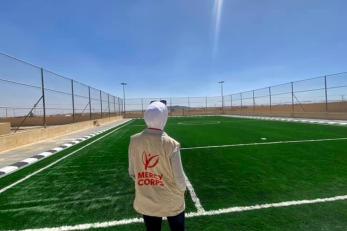
The Mercy Corps Jordan team rehabilitated a football field when they launched the Hashemiyah Youth Centre, which also included a computer lab and gym. Hamad, a youth centre member, said the football field had been in such bad shape that some people were injured. “Now the situation is completely different,” said Hamad. “With the stadium's floor and lights being repaired, allowing us to play there again without fear.”
I can recall when I was younger how much I wanted to play basketball, even though I wasn’t the tallest player on the court. To this day, I remain a big fan of the NBA, always cheering on the Golden State Warriors. Even from across the world, despite the time difference, I’ll stay up late to stream a live game just to watch one of my favorite sports.
“Sport is a universal language,” said Kofi Annan, almost 20 years ago. The former U.N. Secretary-General continued on to say, “And when young people participate in sports or have access to physical education, they can experience real exhilaration even as they learn the ideals of teamwork and tolerance.” My team here in Mercy Corps Liberia has seen firsthand how sports can reach young people and boost their resilience on and off the field.

